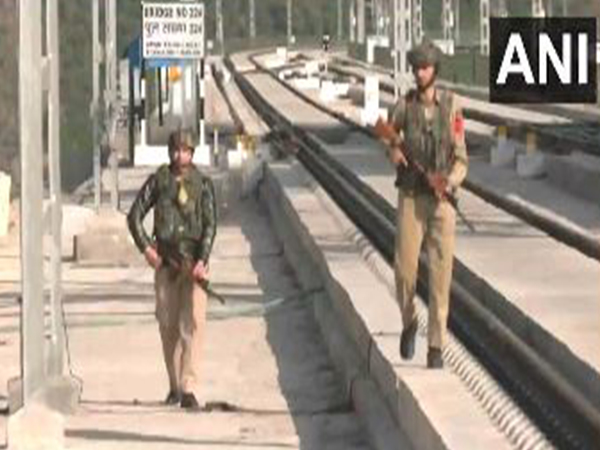"No one should not have problem with CAA", says Giriraj Singh
Mar 13, 2024

Patna (Bihar) [India], March 13 : Union Minister Giriraj Singh said that the Citizenship Amendment Act will "grant" citizenship to the citizens of India and "no one should have a problem" with the law.
Speaking to ANI on Wednesday, the BJP leader said, "No one should have a problem with CAA. The law will not snatch citizenship. It is going to give citizenship to citizens of India."
Replying to a query on West Bengal Chief Minister Mamata Banerjee, he said, "Let us see in the Lok Sabha elections...She is playing appeasement politics in West Bengal and will have to pay for it."
On the Congress releasing its second list of candidates for the upcoming Lok Sabha elections, he said, "It is their own job."
Meanwhile, West Bengal Chief Minister Mamata Banerjee hit out at the Modi government on the CAA notification.
"The Central Government implemented CAA yesterday; I am doubtful of its legality. There is no clarity from the government over this. This is just a gimmick ahead of the elections. In 2019, the names of 13 lakh Hindu Bengalis, out of the total of 19 lakh, were removed from the list in Assam in the name of NRC. Several people died by suicide," she said on Tuesday.
In reaction to the central government notifying the Rules of the Citizenship Amendment Act (CAA), passed in 2019, Karnataka Chief Minister Siddaramaiah questioned the inactivity of the Bharatiya Janata Party (BJP) on the CAA in the last few years and said that they are implementing it since elections are coming up.
"They (Centre) have implemented CAA as elections are coming up. Why were they quiet till now? I oppose the granting of citizenship based on religion," Siddaramaiah said speaking to reporters at Chamarajanagar on Tuesday.
On March 11, the Union Home Ministry notified the rules of the Citizenship Amendment Act (CAA), days ahead of the announcement of the Lok Sabha election schedule.
The CAA rules, introduced by the Narendra Modi government and passed by Parliament in 2019, aim to confer Indian citizenship to persecuted non-Muslim migrants--including Hindus, Sikhs, Jains, Buddhists, Parsis, and Christians--who migrated from Bangladesh, Pakistan, and Afghanistan and arrived in India before December 31, 2014.

















